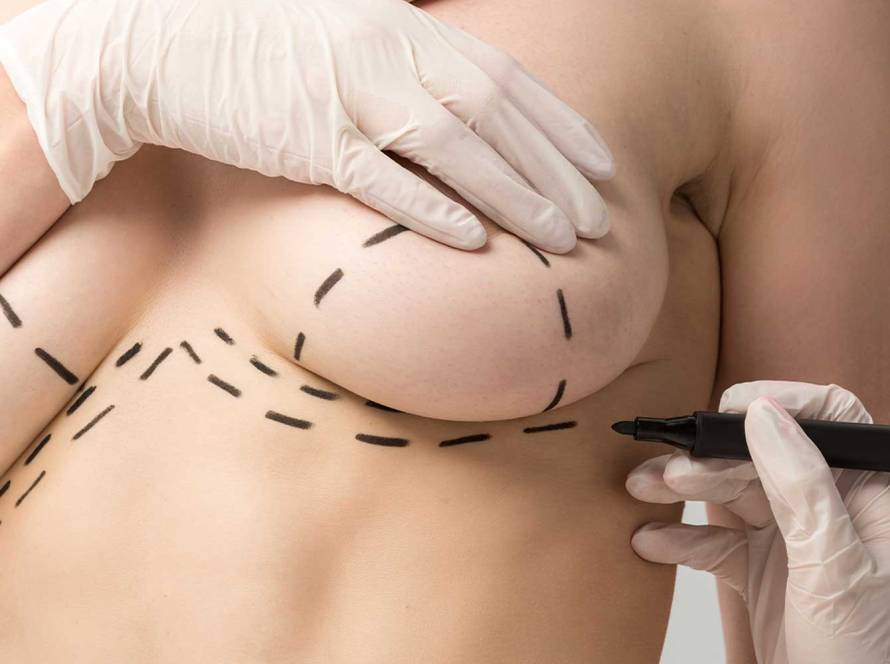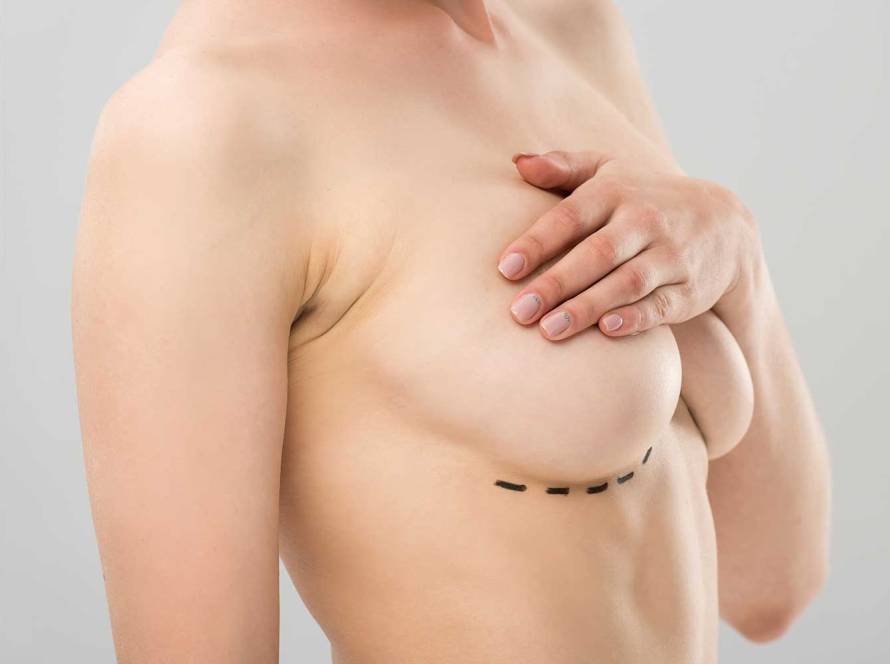Breasts in women usually enlarge during pregnancy and postpartum lactation. After the lactation period is over, the breasts remain large and sag. Breast reduction surgery is an operation to restore the normal size and erection of breasts that are larger than normal and sagging.
Breasts that are larger than normal cause collapse in the shoulders, back pain, sweating under the breasts, and bad smell. This situation causes physical and psychological discomfort to the person. For this reason, breast reduction surgery is a functional surgery as well as being an aesthetic surgery.
Anesthesia
General
Operation
60-75 min.
Recovery Time
1-2 week
Final Conclusion
3 week
Pain
Minimal
Breast reduction surgeries are performed under general anesthesia and the surgery takes an average of 3 hours. The patient is usually discharged one day after the surgery.
Drains placed between the stitches to collect blood and body fluids that may accumulate inside are removed in 24 to 48 hours. The suture lines are closed with tapes and no additional dressing is required.
When the bands are removed after a month, fine line scars are seen. There is no need to take stitches as there is no stitching from the outside.
There are many surgical techniques applied for breast reduction surgeries.
The surgical techniques applied may vary according to the size of the breast and the surgeon's preference.
The ideal age for breast reduction surgeries is the period when the childbearing processes are completed. However, in some young girls, the breasts may reach extremely large sizes during the growth period. Breast reduction operations can be performed at an early age (16-17) in order to avoid social, psychological and physical problems in these people.
The scar shape that will remain according to the surgical technique to be applied in breast reduction surgeries is revealed. According to surgical techniques, scars can remain only around the areola (the dark part around the nipple), as well as from the areola down to the lower line of the breast and in the form of an inverted T on the lower line of the breast. Although the scars are pink and somewhat obvious in the first few months, they return to normal skin color after 5-6 months and are often not very obvious.
In breast reduction surgeries, the mammary glands are partially removed along with the fat tissue and skin. Although the lactation function of the patients is partially affected, they can generally breastfeed. In people with very saggy breasts, where the nipple needs to be moved more than 20 cm, the nipple may be lost during surgery, with the blood supply to the nipple being cut off or reduced. It is not possible for people with nipple loss to breastfeed.
The scar left after breast reduction surgery depends on the surgical technique as well as the structural characteristics of the patient. There should be no tension when the cut parts are brought together and sewn to reduce scarring. The sutures placed under the skin should be of appropriate depth and amount. The tapes applied on the suture lines after the surgery minimize the tension and support the healing. After removing the bands, wound healing is supported by the use of silicone creams or materials called silicone sheets. Depending on the structural characteristics of the patient, the scar remains as a very thin line or may be indistinctly obscure in repairs made in accordance with the technique.





